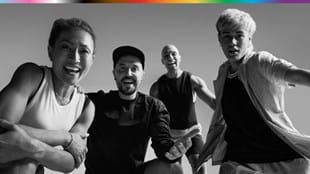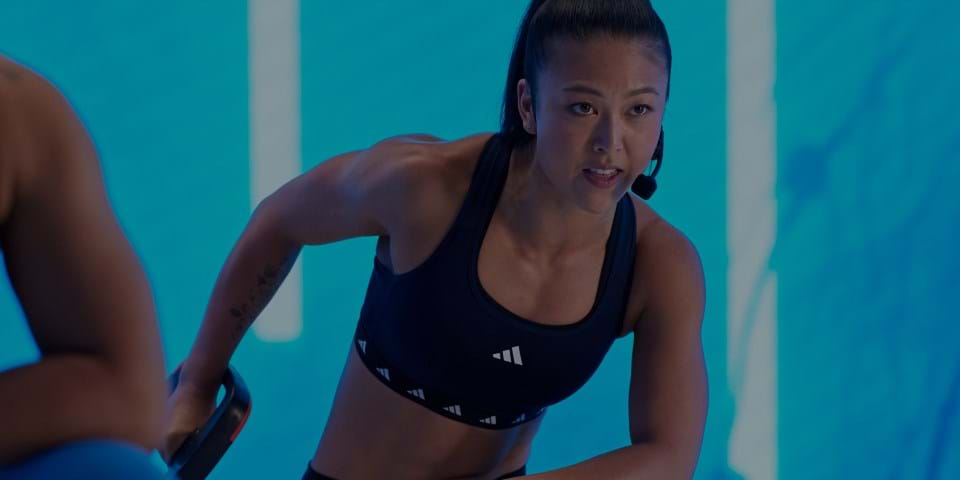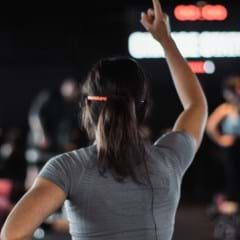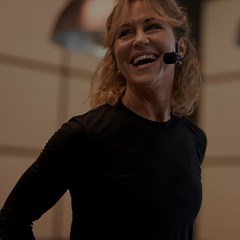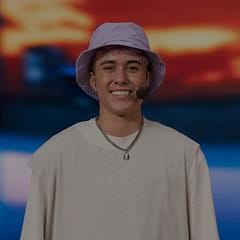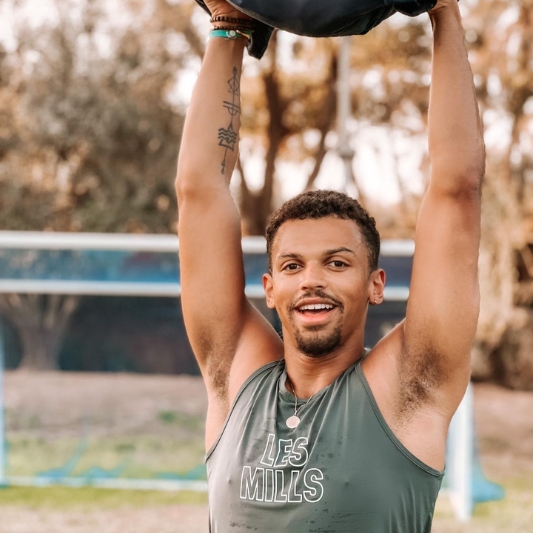
Terrell Lawrence (UK)
Being a gay man has had its lows, especially in the gym space. It's hard to determine how "vibrant" you can be with certain individuals who may not appreciate it. The natural response to allow us to live authentically would be to avoid those individuals, but sometimes we can't.
I was the first male cheerleader in British Basketball and we were lucky enough to be sponsored by the gym chain Nuffield Health. It was there I discovered BODYJAM™ and oh my goodness, the penny dropped! I knew I wanted to teach group fitness. Loud music, energy, workout, connection, feel-good vibes… I was in my element.
The most inclusive facility I teach at is Nuffield Health Plymouth Fitness and Wellbeing. The electric enthusiasm from the members; the hugely talented Instructors; the hilarious and dedicated gym staff – these components make my studio experience so worth it! I always preach how well I've been treated by this club to my members and I'm so grateful I can work in a place like this every day.
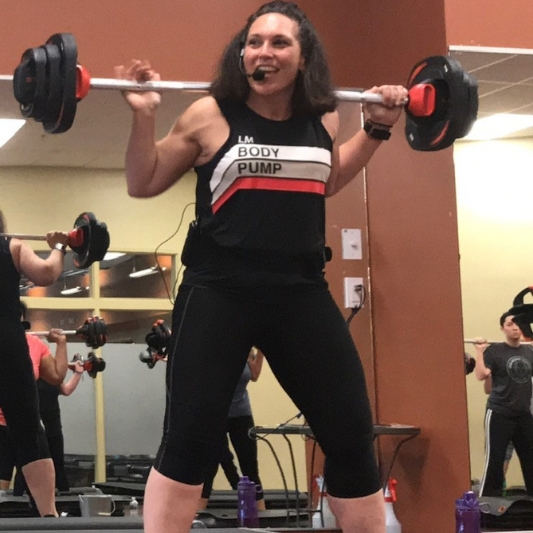
Michele Cumberland (US)
My wife Lisa and I are very lucky. We’ve always felt right at home in our club, among staff and members alike. She's my biggest supporter and is front and center in every one of my classes. The class participants love when she jokingly “heckles” me as I teach. Some have even told me that’s one of the reasons they love my classes – because our relationship is so much fun.
We’re truly blessed that our club is a safe space and we’re made to feel as though we’re an important part of the community. Our GFM encourages us to be our authentic selves. This allows us to feel safe/included/celebrated, but it also helps us be more relatable to the members. We feel safe to be out and bring our personalities and differences to class so members can say: “Hey, she’s like me. Look at how confident she is.” It helps them feel included and accepted regardless of their ethnicity, political and societal beliefs, religion, sexual orientation or gender identification.
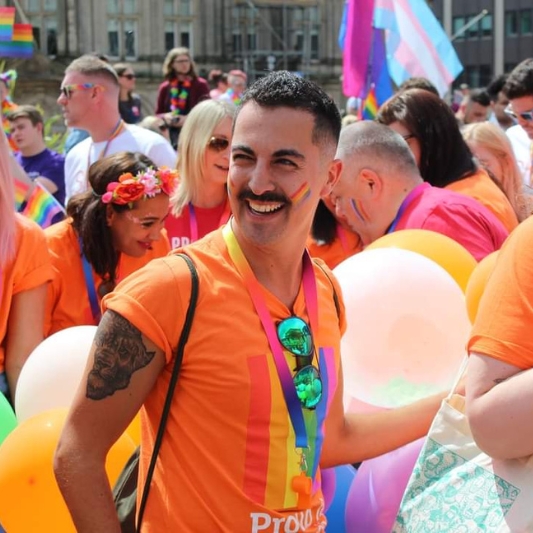
Tim Gonulalan (UK)
Going through school and college in a small town in the Midlands, UK, where “guys do football and rugby” instantly turned me off sport. As a gay man, it can be quite daunting to be in gyms or fitness spaces.
With Les Mills, it's different. As a BODYCOMBAT™ Instructor and a regular at my local LES MILLS GRIT™ class, I feel like I'm part of a community. We're all there for the same reasons, and everyone is supportive of one another. In fact, it was my GRIT family that cheered me on to become a BODYCOMBAT Instructor! When I'm in the studio, I always feel like I'm part of something. The past me never would have imagined I'd feel this way about a gym.
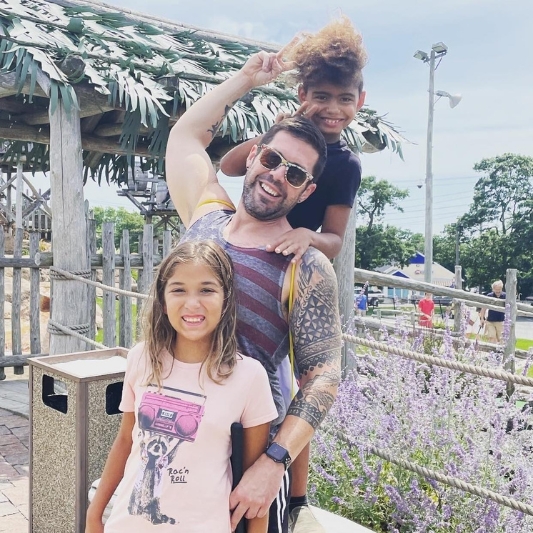
Michael Strouse (US)
When it came to sports and fitness growing up, I was never told "you don't belong here" but, at the same time, no one ever said I DID belong. I spent most of my teens as a theatre kid and only came to fitness after becoming a father. I was nowhere near as healthy as I ought to be and knew I needed to change for my kids.
I think in fitness, as in life, it's so easy to drop people into buckets: there are the weightlifters, the indoor cyclers, the yogis... I've fought stereotypes my entire life and I didn't want the same thing to happen when I walked into a gym, so I tried everything. As a result, I can hang on the weight floor just as well as I can in a cycle class.
My current facility, HealthQuest in Flemington, New Jersey, is incredible. I think one of the most important things they've done is take me at face value. It's so tempting to "edit" what one shares with colleagues and members and from day one, I was asked to share with the group – from questions about my husband and kids, to life beyond the gym. One thing, which sounds so simple, is that the Marketing Director went out of his way to invite me and my family to participate in “Take Your Kids to Work Day”. You can feel that the culture appreciates that our differences not only make us better but also serve our members better!
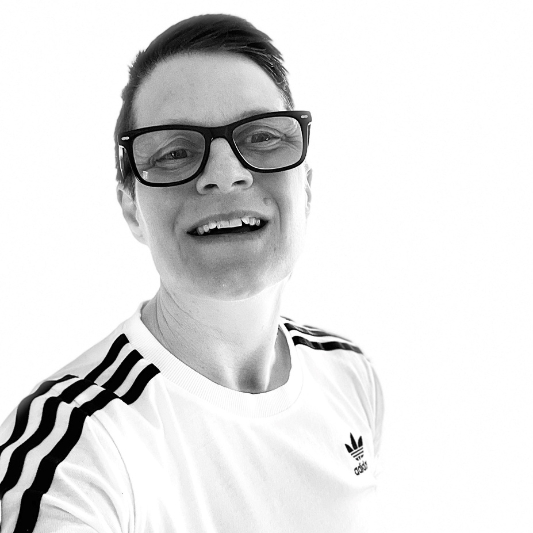
Claire Smith (UK)
Growing up in Durham, my teenage years were difficult. I knew I was different to the girls at school and being attracted to girls was very confusing and isolating. I got into fitness to help me be myself and not feel so “different” – the focus is on the workout, not my sexuality. People come to my classes because they enjoy the workout and there’s no judgment or stigma. It’s my "happy place".
I did have one uncomfortable experience at a club: some years ago, I was teaching an aqua class and men watching in a jacuzzi made homophobic comments about me. I chose to ignore them, but I do look back and wonder if I should have said something.
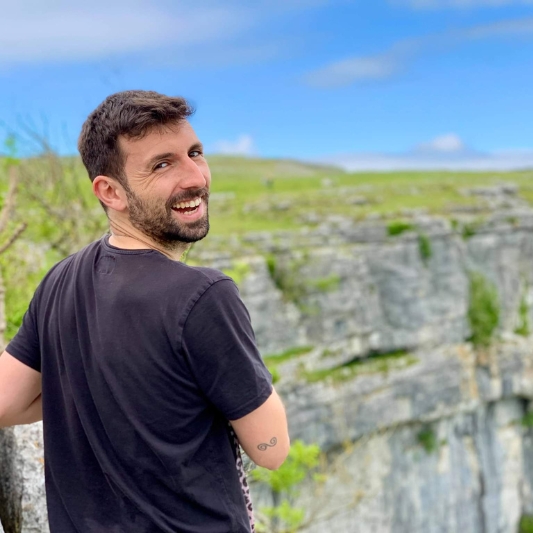
Dr Pablo Carames Mendez (Spain)
I used to practice martial arts professionally. I won the gold medal in the teen category of the World Championships of Haidong Gumdo. However, being gay was/is a massive problem in the Martial Arts Community. I left the world of exercise for years because it was a constant psychological battle. It got to the point that I really felt worthless. This was compounded when my father told me not to come home after university because he couldn’t accept my sexuality. When I was 24, I moved abroad and discovered group fitness. BODYJAM was my OMG moment! I could be who I really was and feel supported at the same time.
When I teach, I love to make people feel safe in a diverse, inclusive and amazing atmosphere. The gym has become the place I also call home, because it's a safe space for everyone to have fun, enjoy fitness, and forget about the world for a little while.
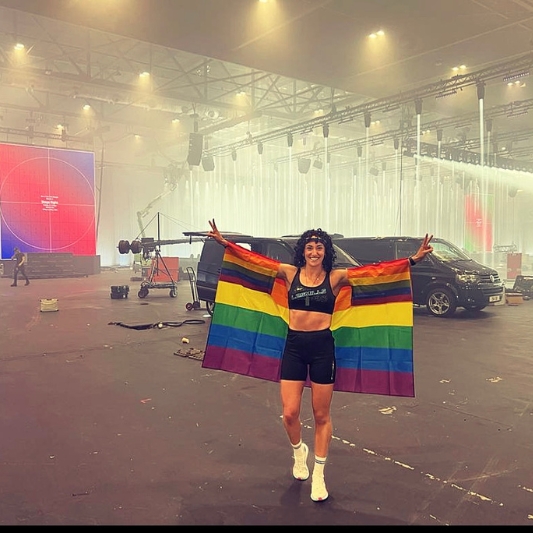
Emily Wallis (UK)
Growing up in a small town in the nineties, the word "lesbian" was really frowned upon. To be completely honest, I would shudder whenever I heard it. There weren't really any queer female role models at the time apart from Ellen DeGeneres, but I didn't identify with her. I felt very confused and isolated. It wasn't until I turned 24 and developed an obsession with Jessie J that I was able to acknowledge my sexuality and accept it.
Discovering BODYATTACK™ allowed me to express myself and find my voice as a young queer woman. Teaching the program has taken me on an unexpected journey and it's enabled me to step outside my comfort zone on so many levels. I've met so many like-minded people also from the LGBTTQIA+ community, which has helped build my confidence in the queer space.
I never want anyone to feel how I did as child, and I welcome conversations with those who may need someone to listen. Visibility is the key to our future of making people feel secure in themselves – whoever they are.
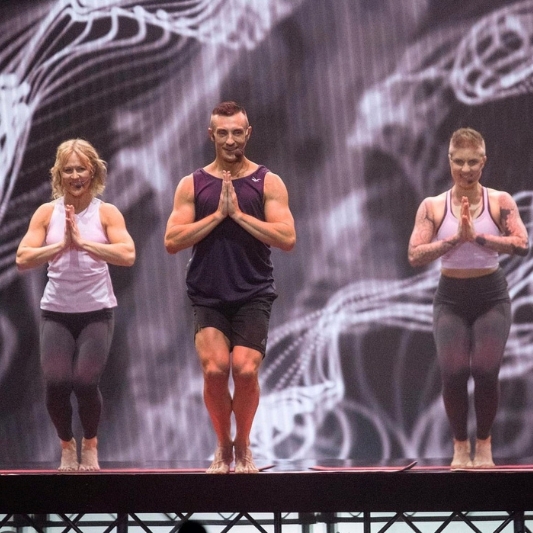
James Brennan (Australia)
There've been many times I've been made to feel unwelcome, pressured to conform and hide a piece of myself. My background is in professional ballet and the challenge of coming into the fitness industry as a dancer was dealing with overt hyper-masculinity. Because I didn’t conform to the traditional notion of "strength", the "norm" of physical and vocal masculinity, I felt like an outsider. I've worked hard over the years to own my space and learn to be me – take it or leave it.
Group fitness gave me a place to be comfortable moving to music and show that all types of people, genders, voices, and hearts deserve a space to be safe. For me, it was the marriage of music and movement combined with sitting outside of my comfort zone (speaking and hearing my own voice which is not overly masculine). I was very lucky to have support and guidance from people who believe in being yourself. I found a home where I now welcome others to find their strengths and confidence when I train Instructors at Initial and Advanced Trainings.
I met my partner through group fitness. We are truly thankful for group fitness connecting us and bringing us together.
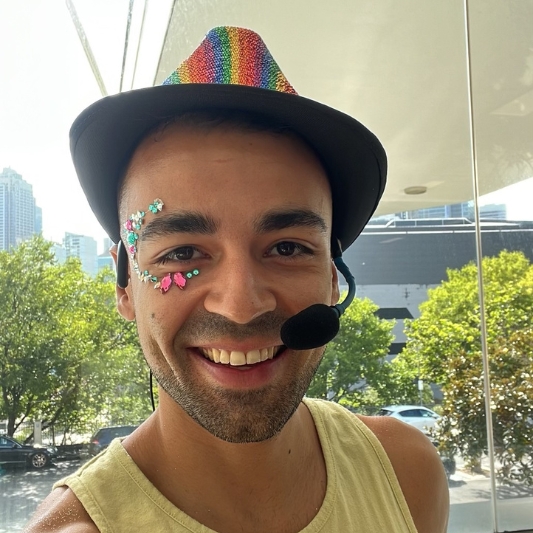
Caio Cestari (Brazil)
Physical education classes in Brazil were a trauma I've learned to overcome. Boys and girls were always split up. Girls had opportunities to dance, do gymnastics and feel free, while boys had a strict sports-based regime: basketball, volleyball, handball and soccer. There was a lot of peer pressure to perform and the bullying from the other boys if you didn’t measure up was quite harsh. I took every opportunity to escape that doom: I went to the library to research (anything), play chess, literally whatever! The worst was the fitness test. All boys were placed in a circle, and you had to go to the middle of the circle to perform as many push-ups on your toes as you could. I always had stronger boys before me, so the pressure was on. If I could do five, poorly done, I would still get laughs and comments for the entire month after it. Physical education was hell for me until I left school and found group fitness!
I will never forget the first time I stepped into a BODYCOMBAT class back in 2006. I had to #BeBrave, as I was one of the two boys who were there, along with 20+ women and the stigma that group fitness had back then as 'aerobics for girls'. I remember: the combination of a welcoming instructor (Gabriel, I'll never forget you!); music that was familiar to me; the challenge to perform it on the beat; learning sequences while other people were with me, not judging me as in school. It was truly liberating.
I became a regular on the first week, started attending extra classes, local workshops, events and looking for music online, researching everything about it... And then, a year later, I discovered BODYATTACK. The exhilarating feeling of uplifting, fun, sing-along music, the arm lines, the choreography that I always used to perform on my own in a closed bedroom so no one could see, was there, in front of me, and being performed by dozens of #United people with a pure sense of joy! And as Marlon Woods said: "You can't fake joy".
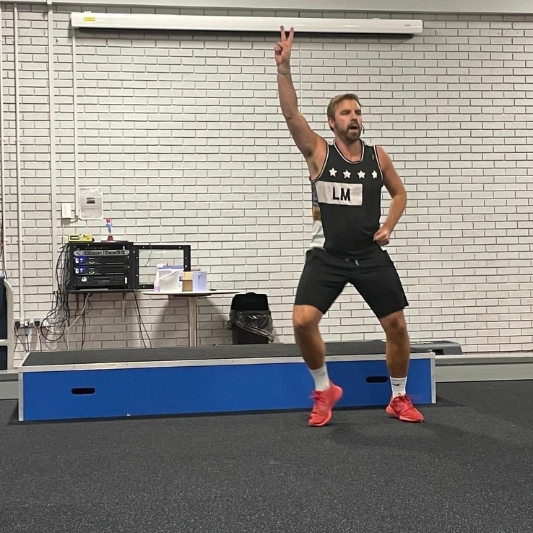
Robbie Jones (UK)
I’m a gay man with three adopted children. My fitness journey began following my completion of a dance degree. I discovered BODYATTACK and instantly fell in love with the passion, fun and pride the program exudes. The Les Mills community in any facility I attend or work in is always one of acceptance and joy. It's always a space I feel safe in and proud to just let go and embrace the journey of each class.
LES MILLS+ got me through lockdown and I worked out regularly with my children to get through some of the tougher days. The workouts always gave me a sense of hope and a feeling of being connected with others.
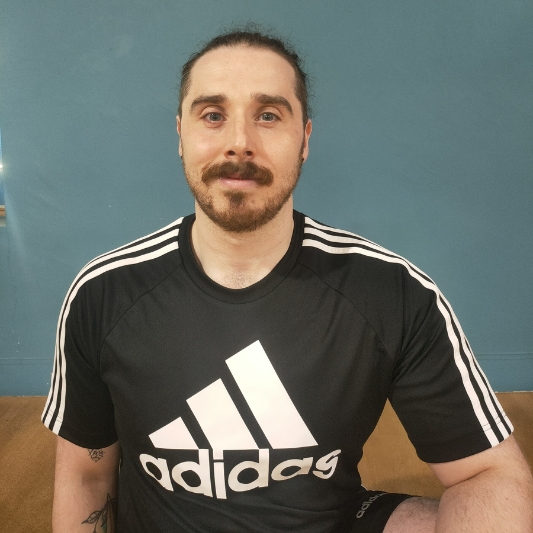
Larry Torris (Ireland)
As a teenager, I was very self-conscious of not fitting in with sports teams. I felt too effeminate or camp to be accepted. Some made me feel as though there wasn't a place for me because I wasn't "manly" enough. Or I was singled out for being different. Because I still enjoyed being active and in sports, I began participating in individual activities such as swimming, shot putt and martial arts. I also joined a stage/dance school where my love for exercise grew, although participating in this further distanced me from certain "masculine" sports because I stood out as being effeminate.
As an adult, I became more confident and started going to the gym and lifting weights. I attended group exercise and realized I wanted to teach to share the positivity I myself had experienced. Group exercise as a participant helped me become confident both in my athleticism and in myself as a non-heterosexual person.
Teaching at Felda Health Fitness and Spa gives me incredible joy and fulfilment. The key thing the club has done is to just treat me exactly the same as any other member of staff. Everybody is treated with equal dignity and respect and given opportunities to contribute their ideas. The club is a space where I can be my true self in a safe, supportive environment, without fear of being judged.
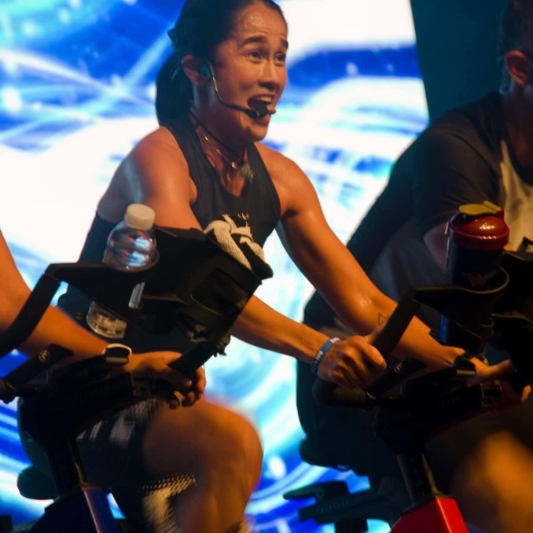
Lilian Chong (Malaysia)
I’m fortunate to have always felt accepted. I’ve been involved in sports and fitness since school and when I started working at the gym, I was also made to feel welcome. My colleagues respect my sexual orientation and they love me for who I am.
At the end of the day, all we want is equality. No judgment, no discrimination. June is Pride Month, which allows us to step into our light and find joy in celebrating love. It's about celebrating LGBTTQIA+ history, fighting discrimination and honoring difference. This is the month to show the world how amazing and proud we are!



